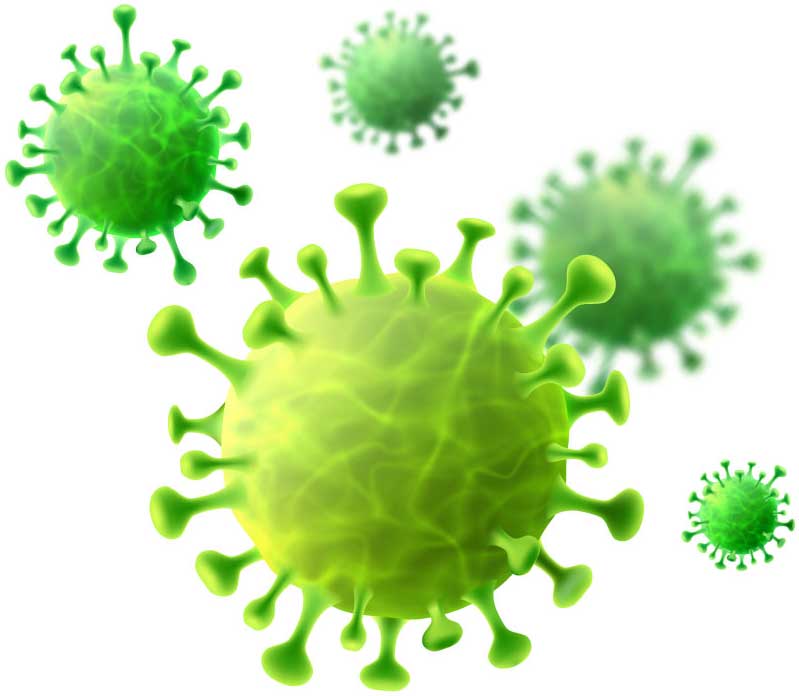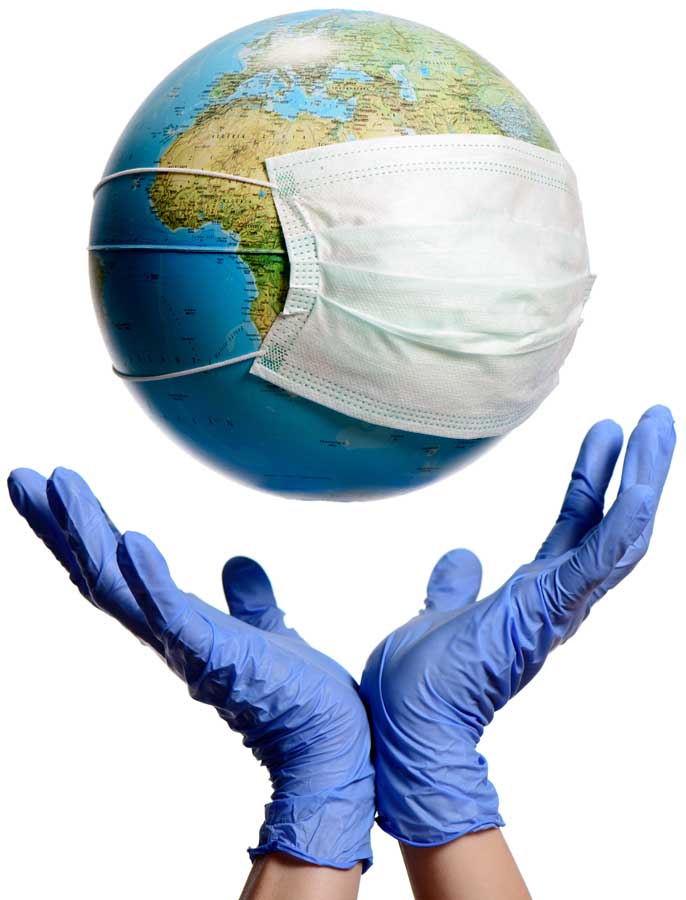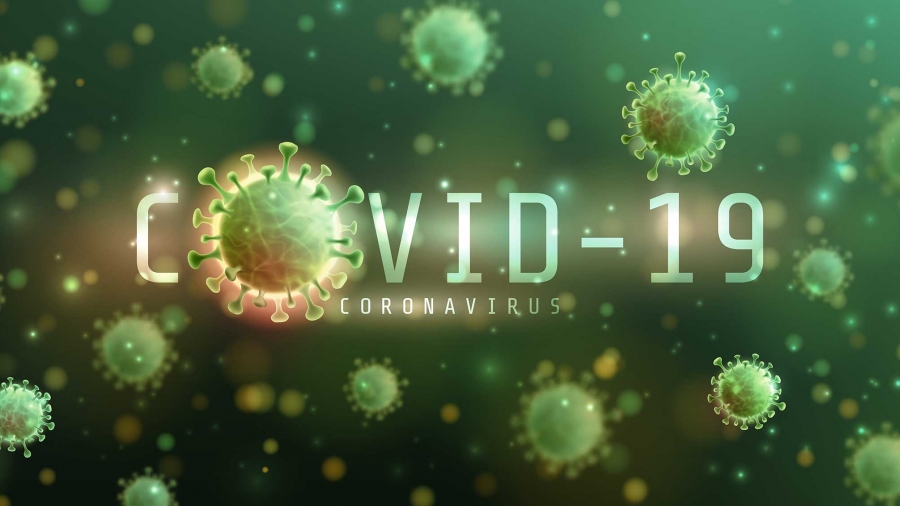 The 2019–20 coronavirus pandemic is an ongoing pandemic of coronavirus disease 2019 (COVID 19) caused by severe acute respiratory syndrome coronavirus 2 (SARS CoV 2). The outbreak was identified in Wuhan, China, in December 2019. The World Health Organization declared the outbreak a Public Health Emergency of International Concern on 30 January, and a pandemic on 11 March. As of 3 May 2020, more than 3.42 million cases of COVID-19 have been reported in 187 countries and territories, resulting in more than 243,000 deaths. More than 1.09 million people have recovered.
The 2019–20 coronavirus pandemic is an ongoing pandemic of coronavirus disease 2019 (COVID 19) caused by severe acute respiratory syndrome coronavirus 2 (SARS CoV 2). The outbreak was identified in Wuhan, China, in December 2019. The World Health Organization declared the outbreak a Public Health Emergency of International Concern on 30 January, and a pandemic on 11 March. As of 3 May 2020, more than 3.42 million cases of COVID-19 have been reported in 187 countries and territories, resulting in more than 243,000 deaths. More than 1.09 million people have recovered.
The virus is primarily spread between people during close contact, often via small droplets produced by coughing, sneezing, or talking. The droplets usually fall to the ground or onto surfaces rather than remaining in the air over long distances. People may also become infected by touching a contaminated surface and then touching their face. On surfaces, the amount of virus declines over time until it is insufficient to remain infectious, but it may be detected for hours or days. It is most contagious during the first three days after the onset of symptoms, although spread may be possible before symptoms appear and in later stages of the disease.
Common symptoms include fever, cough, fatigue, shortness of breath, and loss of smell. Complications may include pneumonia and acute respiratory distress syndrome. The time from exposure to onset of symptoms is typically around five days, but may range from two to fourteen days. There is no known vaccine or specific antiviral treatment. Primary treatment is symptomatic and supportive therapy.
 Recommended preventive measures include hand washing, covering one’s mouth when coughing, maintaining distance from other people, wearing a face mask in public settings, and monitoring and self-isolation for people who suspect they are infected. Authorities worldwide have responded by implementing travel restrictions, quarantines, curfews and stay-at-home orders, workplace hazard controls, and facility closures. Many places have also worked to increase testing capacity and trace contacts of infected persons.
Recommended preventive measures include hand washing, covering one’s mouth when coughing, maintaining distance from other people, wearing a face mask in public settings, and monitoring and self-isolation for people who suspect they are infected. Authorities worldwide have responded by implementing travel restrictions, quarantines, curfews and stay-at-home orders, workplace hazard controls, and facility closures. Many places have also worked to increase testing capacity and trace contacts of infected persons.
The pandemic has caused severe global socioeconomic disruption, including the largest global recession since the Great Depression. It has led to the postponement or cancellation of sporting, religious, political and cultural events, widespread supply shortages exacerbated by panic buying, and decreased emissions of pollutants and greenhouse gases. Schools, universities and colleges have closed either on a nationwide or local basis in 194 countries, affecting approximately 98.5 per cent of the world’s student population. Misinformation about the virus has spread online, and there have been incidents of xenophobia and discrimination against Chinese people and against those perceived as being Chinese, or as being from areas with high infection rates.
Source: Wikipedia
COVID-19 affects different people in different ways. Most infected people will develop mild to moderate symptoms.
Common symptoms:
- fever.
- tiredness.
- dry cough.
Some people may experience:
- aches and pains.
- nasal congestion.
- runny nose.
- sore throat.
- diarrhoea.
On average it takes 5–6 days from when someone is infected with the virus for symptoms to show, however it can take up to 14 days.
People with mild symptoms who are otherwise healthy should self-isolate. Seek medical attention if you have a fever, a cough, and difficulty breathing. Call ahead.
Source: Google
To prevent the spread of COVID-19:
- Don’t touch your eyes, nose or mouth.
- Cover your nose and mouth with your bent elbow or a tissue when you cough or sneeze.
- Stay home if you feel unwell.
- If you have a fever, a cough, and difficulty breathing, seek medical attention. Call in advance.
- Follow the directions of your local health authority.
To date, there are no specific vaccines or medicines for COVID-19.
Self-care
If you feel sick you should rest, drink plenty of fluid, and eat nutritious food. Stay in a separate room from other family members, and use a dedicated bathroom if possible. Clean and disinfect frequently touched surfaces.
Everyone should keep a healthy lifestyle at home. Maintain a healthy diet, sleep, stay active, and make social contact with loved ones through the phone or internet. Children need extra love and attention from adults during difficult times. Keep to regular routines and schedules as much as possible.
It is normal to feel sad, stressed, or confused during a crisis. Talking to people you trust, such as friends and family, can help. If you feel overwhelmed, talk to a health worker or counsellor.
For informational purposes only. Consult your local medical authority for advice.
Medical treatments
If you have mild symptoms and are otherwise healthy, self-isolate and contact your medical provider or a COVID-19 information line for advice.
Seek medical care if you have a fever, a cough, and difficulty breathing. Call in advance.
Learn more on who.int
Source: Google
For informational purposes only. Consult your local medical authority for advice.
Cases
Deaths
Recovered
Active
Cases Today
Deaths Today
Critical
Affected Countries
Sort by confirmed numbers.
| Country or Region | Cases | Deaths | Recovered |
|---|

